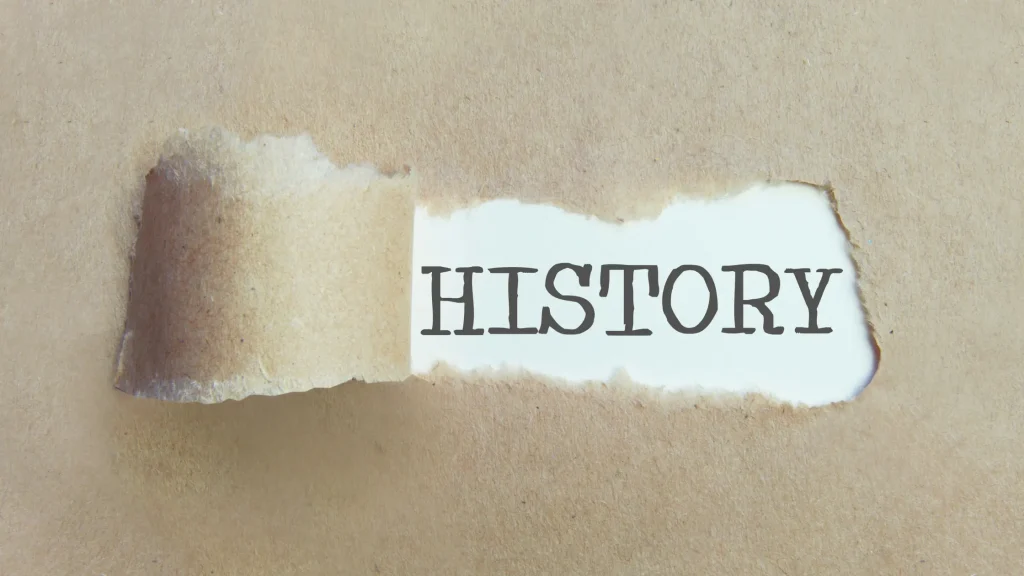The Impact of Digital History on Paper Writing
History Paper | June 13th, 2024 | By SEO Manager

Writing a history paper is a tough deal for students who are pursuing a degree in it. Students now rely on digital history for research purposes and as the sole source of information. They find it useful and a healthy way to go back to the old times to find reality.
What do you think about the impact of digital history on paper writing? Is it good? Does it come with a few challenges that students might be unaware of? Let’s dig into this debate!

What Is Digital History?
Digital history means using digital media to find historical evidence, analyze, and present historical data and narratives.
It is not limited to its scope; it includes a wide range of activities, including digitizing primary sources, using databases and digital archives, using geographic information systems (GIS), and much more.
The Impact of Digital History on History Paper Writing
The start of digital history has significantly influenced the process of writing history papers. Here’s how:
Great Access to Sources
Digital archives and online databases have made primary and secondary sources more accessible than ever. Students and researchers can now get their hands on Jstor, Google Scholar, and many other sites that have worthy historical documents, images, and records without leaving their comfort. If you are a student, then you can easily find:
- Primary Sources: Digitized letters, diaries, newspapers, and official documents help researchers get firsthand info on contemporary perspectives on historical events.
- Secondary Sources: Online journals, books, and articles offer a broad spectrum of interpretations and analyses from various historians.
Advanced Research Tools
Digital history offers a range of tools that facilitate the research process. These tools help historians to organize, analyze, and interpret data more efficiently:
- Search Engines and Databases: Powerful search functionalities enable researchers to find specific information quickly within vast digital collections.
- Data Analysis Tools: Software for text analysis, data visualization, and mapping allows historians to uncover patterns and trends that might be difficult to detect manually.
Interdisciplinary Approaches
The use of digital methods encourages interdisciplinary approaches to historical research. Historians can collaborate with experts in fields such as computer science, geography, and statistics to enhance their studies:
- Digital Humanities Projects: Collaborative projects can help create interactive maps, timelines, and databases that provide new insights into historical events and trends.
- Statistical Analysis: You can use quantitative methods to analyze historical data, providing a different perspective on historical questions.
New Forms of Presentation
It becomes easy for students to make new forms of presentation because digital history has expanded the ways in which historical research can be presented. Beyond traditional written papers, historians can use digital platforms to share their findings:
- Multimedia Presentations: You can use images, audios, and videos in history papers to make them more engaging and informative.
- Interactive Websites: Now, you can create websites or online exhibits that allow historians to present their research in an interactive and accessible format.
To get high-quality history paper writing services, you can reach Mypaperwriters.net.
Greater Collaboration
With the help of digital tools, greater collaboration among historians, students, and educators is now possible. Online platforms and social media allow scholars to share their work, receive feedback, and collaborate on research projects:
- Online Communities: Platforms like Academia.edu and ResearchGate allow historians to share papers, discuss ideas, and collaborate on research projects.
- Crowdsourcing Projects: Collaborative projects like transcription and annotation of historical documents can involve contributions from a broader community, including amateur historians and students.
Challenges and Considerations of Digital History
Certainly, digital history offers many advantages, but it also presents several challenges and considerations for historians. Here they are:
Evaluating Source Reliability
Make sure to check and ensure that all online sources are reliable or authentic. Researchers must develop robust skills in source evaluation to find the credibility of digital documents. For this, verify the origin of sources, understand the context in which they were created, and assess their accuracy and completeness.
Digital Preservation
You never know when digital media will be removed, and it is fragile. A migration to new formats and storage systems is necessary for the long-term preservation of digital records. For future generations, historians and archivists must collaborate to develop and implement best practices for digital preservation.
Skills and Training
The effective use of digital tools and methodologies requires specialized skills that may not be part of traditional history training. Historians need to develop competencies in areas such as data analysis, coding, and digital curation.
Ethical Considerations
The use of digital tools and the accessibility of vast amounts of data raises important ethical considerations. Historians must navigate issues related to privacy, consent, and the potential for data misuse. It is especially important when dealing with sensitive materials or information about living individuals.
Intellectual Property and Copyright
Various intellectual property and copyright issues arise in the digitization and online dissemination of historical materials. Historians must be aware of and deal with these legal frameworks to avoid infringement and ensure that their use of digital materials complies with legal and ethical standards.
Quality of Digitized Materials
The purpose of writing a history paper is to spit facts, compare history with contemporary situations, and much more, but unfortunately, all the digital history present online is not of high quality. Choose only the sources that are of high standard, usable, and reliable. Even historians need to invest in technology and expertise to produce high-quality digital reproductions of historical sources.
Maintain Academic Rigor
The ease of accessing and manipulating digital data can sometimes lead to superficial or less rigorous research. Historians must maintain the same standards through source criticism, careful data interpretation, and transparent presentation of findings.
Ending Note
The impact of digital history on history paper writing is great because digitization has helped students in many ways. But getting the benefits of this with smartness is necessary. Similarly, for historians, there are some responsibilities towards maintaining originality, quality academic rigor, and ethics.
They are important because the dissemination of the right knowledge only leads everyone to the path of success. I hope now you understand everything. Cheers!
